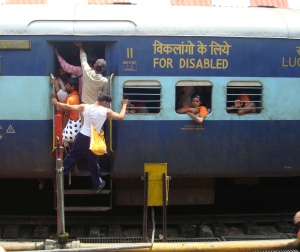Union Minister of Social Justice & Empowerment Shri.Mukul Wasnik has urged States to appoint fulltime Commissioners for Persons with Disabilities and provide adequate staff and create necessary infrastructure for welfare and development of the disabled persons.
Addressing the 11th National Meeting of State Commissioners for Persons with Disabilities here today, Shri Wasnik said that the status of implementation of the existing Persons with Disabilities Act across the country is skewed and uneven. This is attributable to a variety of reasons including absence of full time Commissioners disabilities with independent charge at a state level. He said that his Ministry would extend all possible support in creating barrier free environment in States and UTs.
Speaking on the occasion, the Minister said that the Ministry is working on a new legislation for the empowerment of persons with disabilities in line with the UN Convention. He said that a Committee has been already constituted comprising of stakeholders, experts, some State Governments and Union Ministries, etc. to draft a new legislation to replace the present Act. The Committee submitted its Report; including a draft Bill called The Rights of Persons with Disabilities Bill. We are examining the Bill in consultation with 17 concerned Central Ministries and Departments. The Bill has also been discussed in a meeting of the Central Coordination Committee, a statutory forum set up under the existing Persons with Disabilities Act, on 12th November last.
Minister of State for Social Justice and Empowerment Shri D. Napolean said that State Commissioners for Disabilities should play proactive role in ensuring that all children with disabilities are covered under Sarva Shiksha Abhiyan. During the meeting he suggested to establish Disability University, special recruitment wing for differently abled persons, disability rehabilitation department, fully equipped early intervention center in every district and time slot on all national media for broadcasting programmes related to disability.
Earlier making a presentation Chief Commissioner for Persons with Disabilities Shri P.K Pincha said that all States have constituted the State Coordination Committees and State Executive Committees under the Persons with Disability Act, 1995 which provides for education, employment, creation of barrier-free environment, social security etc. However, regular meetings of these committees are not held. 14 States such as Assam, Bihar, Chhatisgarh, Gujarat, Haryana, Jharkhand, Karnataka, Odisha, Madhya Pradesh, Meghalaya, Kerala, Maharashtra, Tamil Nadu and West Bengal have appointed full time Commissioners. A total 35 States have constituted Medical Boards in each district to facilitate issue of disability certificates. The Ministry of Social Justice and Empowerment has identified more than 2366 jobs(Group A-785,Group B-254,Group C-1112 and Group D-251) including IAS and other Central Services for the disabled. 24 States /UTs have amended building by laws or issued instruction for creating a barrier free environment.
Secretary to Ministry of Social Justice and Empowerment Shri K.M Acharya was also present during the meeting. State Commissioners for Disabilities from 26 States and UTs are participating in the 2-day meeting to review the implementation of PWD Act. Representatives from Central apex organisations including Rehabilitation Council of India, National Trust, National Handicapped Finance Development Corporation and National Institutes for different disabilities are participating in the meeting organised by the Chief Commissioners of Disabilities.



